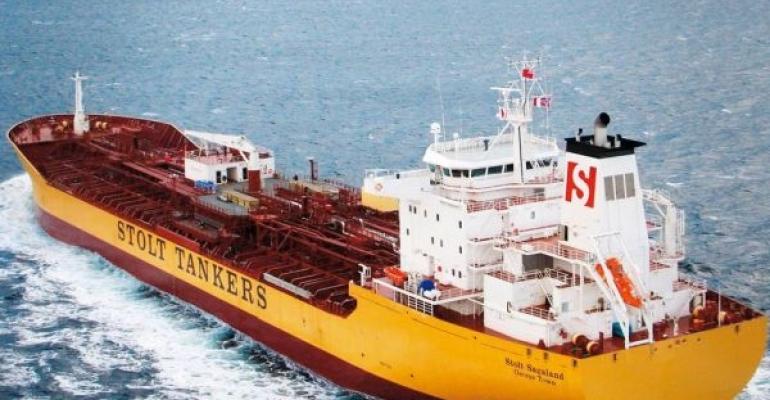Niels G. Stolt-Nielsen, ceo of Stolt-Nielsen, said that the chemical tanker market outlook remains cautiously optimistic as demand is growing in line with global trade. Growth of deepsea chemical tanker fleet, which ran at about 6% annually from 2017 to 2018, is expected to gradually drop to about 2% or less per year for 2020 and 2021.
“Providing that orders for newbuildings remain low, we expect the excess tonnage to eventually be absorbed creating a more balanced market. Assuming global economic and/or trade conditions do not take an unexpected turn for the worse, we may finally begin to see an improvement in chemical markets later this year, with continued strengthening in 2020,” Stolt-Nielsen said.
Mark F. Martecchini, president of Stolt Tanks, believed that 2019 will be a “transition year” for the chemical tanker market, with the number of new ships coming into the market slowing and with continued expected growth in demand.
Market improvements would be further supported, at least in the near term, by the exit of swing tonnage from the chemical market, provided that spot rates in the clean petroleum market maintain the gains achieved towards the end of 2018, according to Martecchini.
Read more: Stolt-Nielsen, Golar and Höegh target small-scale LNG and bunkering
“With less new tonnage entering the market, along with the expected reduction of swing tonnage, spot prices in the chemical tanker markets should improve, ultimately driving increases in rates for contracts of affreightment going forward,” Martecchini said.
“The exact timing of that turning point is difficult to predict, and industry forecasts vary, but Stolt Tankers expects the picture to improve before the end of the year, leading to a distinct improvement in market conditions in 2020.
“Nevertheless, we remain cautious, given current political risks and other uncertainties, including both the future direction of bunker fuel costs and the impact of IMO 2020 fuel regulations,” he commented.
Copyright © 2024. All rights reserved. Seatrade, a trading name of Informa Markets (UK) Limited. Add Seatrade Maritime News to your Google News feed.


